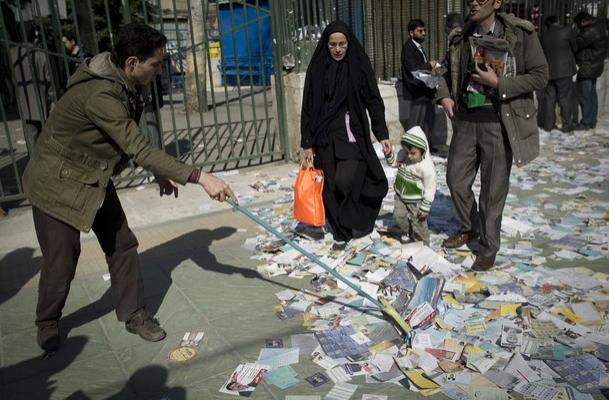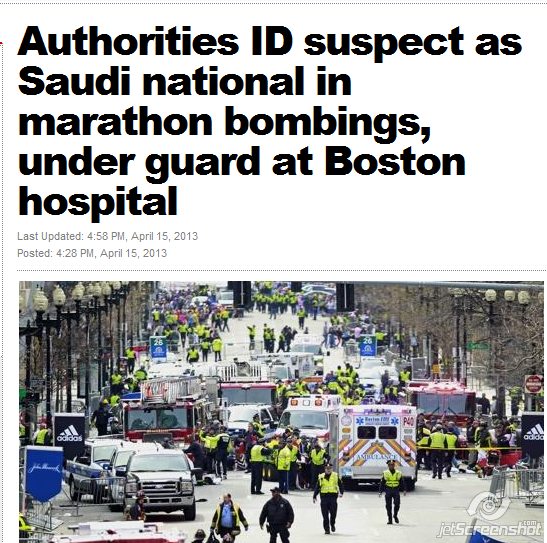 Sweeping Up Campaign Flyers, 25 FebruaryIran, vast and restive, had a way of revealing itself, even in bad times. The Green Movement had been forced underground, but it remained a preoccupation, even among hard-liners. One day, my handlers directed me to a campaign event: a debate among conservative parliamentary candidates at Tehran University, organized by the Basij. The room was filled, and my translator and I stood in the back.
Sweeping Up Campaign Flyers, 25 FebruaryIran, vast and restive, had a way of revealing itself, even in bad times. The Green Movement had been forced underground, but it remained a preoccupation, even among hard-liners. One day, my handlers directed me to a campaign event: a debate among conservative parliamentary candidates at Tehran University, organized by the Basij. The room was filled, and my translator and I stood in the back.
A brave soul approached the microphone and inquired, in Farsi, “If we object to the policies of the nezam, what recourse do we have?” In Iran, the word nezam — “the system” — refers to the country’s unusual political structure, which combines a theocracy, ruled by a Supreme Leader and his executors, and a republic, with elected officials and public debates.
One of the panelists, Hamid Rasai, a white-turbaned cleric in an olive-green robe, replied, “Most people don’t think like you. Most people are from the Basij. You who complain are in the minority.”
The crowd roared with applause. Rasai represented the Steadfastness Front, an arch-conservative group of parliamentary candidates associated with a cleric, in Qom, who had once remarked that anyone offering a new interpretation of Islam should be punched in the mouth.
Rasai’s dismissive remark was the reverse of a claim that I had often heard from Iranian reformists: that only a fifth of the populace supported the Basij and that most Iranians were reformists or liberal-minded. Neither appraisal was verifiable in a country without reliable polling. But their concurrence conveyed a different kind of truth. Iranian society had become not just divided but adversarial, with entire communities denying one another’s existence.
Click to read more ...
 Why the search, the interrogation, the dogs, the bomb squad, and the injured man’s name tweeted out, attached to the word “suspect”?
Why the search, the interrogation, the dogs, the bomb squad, and the injured man’s name tweeted out, attached to the word “suspect”?
 Wednesday, April 17, 2013 at 8:14
Wednesday, April 17, 2013 at 8:14